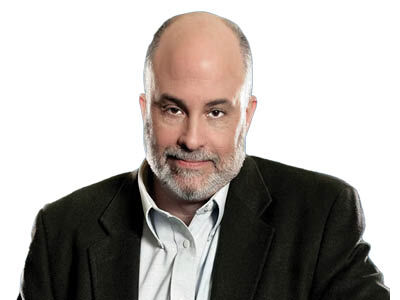Kimmel is back on ABC, but some affiliates still refuse to air his show
News > Top Stories

Audio By Carbonatix
10:36 AM on Wednesday, September 24
By DAVID BAUDER
NEW YORK (AP) — Jimmy Kimmel is back on his ABC late-night show, but it's still a mystery when — or if — viewers in cities such as Seattle, Washington and St. Louis will be able to see him again on their televisions.
ABC stations owned by the Nexstar and Sinclair corporations took Kimmel off the air last week on the same day the network suspended him for comments that angered supporters of slain conservative activist Charlie Kirk. Those stations kept him off the air Tuesday, when ABC lifted the suspension. The unusual dispute attracted the attention of U.S. senators, who said they wanted to investigate the relationship between the affiliates and President Donald Trump's administration.
Kimmel returned with no apologies, but in an emotional monologue where he appeared close to tears, the host said that he was not trying to joke about the assassination. He also paid tribute to Kirk's widow.
More than 12 million people watched him on YouTube by Wednesday afternoon. Typically, he gets about 1.8 million viewers each night on television. TV ratings were due to be released later in the day.
A spokesman for Nexstar said Wednesday that Kimmel will continue to be preempted from its stations while the company evaluates his show. Together, the Nexstar and Sinclair groups account for about a quarter of ABC's affiliates, many in smaller cities such as Nashville, Tennessee; Lubbock, Texas; or Topeka, Kansas.
“We are engaged in productive discussions with executives at the (ABC parent) Walt Disney Co., with a focus on ensuring the program reflects and respects the diverse interests of the communities we serve,” Nexstar said.
The dispute focused attention on the business relationships between television networks and the local stations that carry their programming. In the past, local stations occasionally balked at airing a network show, but it was usually an individual market or two worried about pushing boundaries in language or sexual content, said Ted Harbert, a former top executive at ABC and CBS.
What's different this time is groups that have gobbled up multiple stations acting collectively on content for largely political reasons.
“This is how much the country's political divisions have seeped their way into something that has been, for the last 50 or 75 years, a relatively orderly business,” Harbert said.
Leadership of ownership groups is generally more conservative than the media and entertainment figures on the stations they broadcast, said Ken Basin, author of “The Business of Television.” Both Sinclair, with conservative political content, and Nexstar have reason to curry favor with the Trump administration, he said. Nexstar is seeking regulatory approval for the purchase of a rival, he said.
“I worry that this is not going to be the only dispute of this nature in the years ahead,” Basin said.
It's possible that Disney could play hardball if negotiations on Kimmel's return drag on, such as threatening to withhold other ABC programming — even the “nuclear option” of football games. Its unclear how the affiliate agreements are worded.
But Matt Dolgin, senior equity analyst at Morningstar Research Service, said he doubts the dispute reaches that point. The station groups have a far less diversified business portfolio than Disney, and the expiration of affiliate agreements next year looms as a deadline, he said. They have few good options if they lose ABC programming.
“From a business perspective, the best course on this issue (for Disney) is to stay above the fray,” Dolgin said. “The dollars associated with this show are very low.”
As they climb, the stunning number of YouTube views of Kimmel's monologue serve to make television broadcasting less important, hurting the negotiating position of the stations.
For the station groups, the biggest goal should be to negotiate their way out of this — while finding a way to save face, he said. Sinclair initially took a strong stance, saying Kimmel would not return to its stations without apologizing to Kirk's widow and donating money to Kirk's political organization. That's not likely to happen.
Last week, Kimmel seemed to be in real danger of losing his show entirely until advocates for free speech protested, including many who canceled subscriptions for Disney services.
“The backlash was stronger than they expected, stronger than I expected,” Basin said. “There was a sense of despair within the industry that this was a ‘canary in a coal mine’ moment.”
Four Democratic senators said late Tuesday that they wanted to look into what happened with the station groups.
“If Nexstar or Sinclair traded the censorship of a critic of the administration for official acts by the Trump administration, your companies are not only complicit in an alarming trampling of free speech but also risk running afoul of anti-corruption law,” Sens. Elizabeth Warren, Ed Markey, Ron Wyden and Chris Van Hollen wrote to the companies.
On Wednesday, another group of senators led by California Democrat Adam Schiff said they wanted to question FCC Chairman Brendan Carr about “implicit threats” made to Disney over Kimmel.
In his monologue Tuesday, Kimmel tried to thread the needle between both sides in a raw political moment, and seemed to realize its difficulty.
“I don’t think what I’m going to say is going to make much of a difference,” he said. “If you like me, you like me. If you don’t, you don’t. I have no illusions about changing anyone’s mind.”
Within hours, many proved his point. Andrew Kolvet, a spokesperson for Turning Point USA, the organization that Kirk founded that is now headed by his widow, posted on X that Kimmel’s monologue was “not good enough.”
In another corner of social media, comic Ben Stiller posted that it was a “brilliant monologue.”
___
David Bauder writes about the intersection of media and entertainment for the AP. Follow him at http://x.com/dbauder and https://bsky.app/profile/dbauder.bsky.social.











